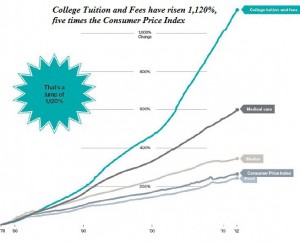
This is the latest extended piece by David DeGraw.
I: Unprecedented Wealth
II: Debt Slavery
III: Mental Slavery – Conditioned Consciousness
IV: The Spectrum of Thinkable Thought
V: Behaviorism & Assembly Line Intelligentsia
VI: Totalitarian Minds Inside the All-Consuming Cult
VII: Free Your Mind
VIII: Cyberspace Underground Railroad
“For the past 35 years, with technological advancements, there has been an explosion in production and profits, in wealth creation. That unprecedented increase in wealth, as many of you know, has gone to the top economic 1%. Most of it, the lion’s share of it, went to not even the top economic 1%, but to the top one-hundredth of one percent, to the modern day aristocracy. After analyzing the most recent data, here’s the headline: US millionaire households now have $50 trillion in wealth. They have $39 trillion in legally accounted for wealth, and an estimate of $11 trillion hidden in offshore accounts. Let that sink in for a moment… 50 TRILLION DOLLAR$. Most people cannot even comprehend how much $1 trillion is, let alone $50 trillion. One trillion is equal to 1000 billion, or $1,000,000,000,000.00. Only one-tenth of one percent of the population makes one million dollars a year, and, again, most of that wealth is in the top one-hundredth of one percent. To show how consolidated the wealth is, even in the upper most portion of the top one percentile, the richest 400 people have as much wealth as 185 million Americans combined; that’s only 400 people with as much wealth as 60% of the entire US population.
Continue reading “Owl: David McGraw State of the Nation State of the People”







